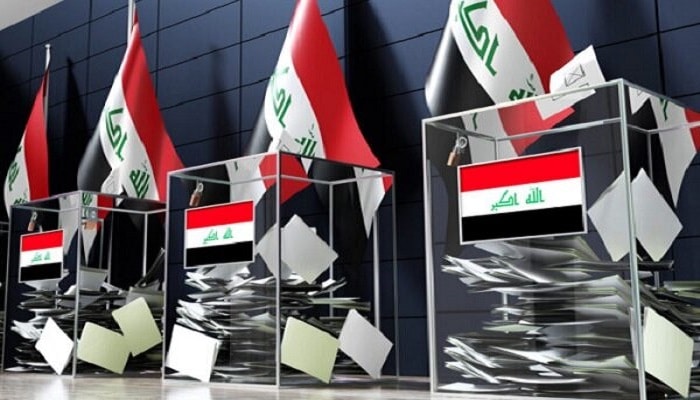PNN – The results of Iraq’s sixth parliamentary election show that Shia parties secured the majority of votes.
According to the report of Pakistan News Network, more than 12 million of the 21.4 million eligible voters participated in the election, marking a 12.5 percent increase compared to the previous round. This rise reflects a strong public turnout and growing interest in political participation.
Lead of the Reconstruction and Development Coalition
Based on the published results, the Reconstruction and Development Coalition led by Mohammed Shia al-Sudani came in first place. The State of Law Coalition headed by Nouri al-Maliki ranked second, followed by the Taqaddum Party led by Mohammed al-Halbousi in third place.
The National Wisdom Movement led by Ammar al-Hakim, the Badr Organization headed by Hadi al-Amiri, and the Huqooq Movement affiliated with Kataib Hezbollah were also among the Shia blocs that achieved notable success.
Read more:
Iraqi elections through the lens of competition between regional and international powers
Parliament seat distribution
According to figures reported by Iraqi media, the Reconstruction and Development Coalition led by Prime Minister Mohammed Shia al-Sudani won 45 seats, securing the top position. It was followed by the State of Law Coalition with 30 seats, the Taqaddum Party with 27 seats, and the Sadiqun Movement led by Qais al-Khazali with 26 seats. The Badr Organization secured 19 seats, while the State Forces Alliance led by Ammar al-Hakim won 18 seats.
Among Kurdish parties, the Kurdistan Democratic Party led with 27 seats, followed by the Patriotic Union of Kurdistan with 18 seats, the New Generation Movement with 3 seats, the Kurdistan Islamic Union with 4 seats, and the Kurdistan Islamic Group with 1 seat.
The Azm Coalition led by Muthanna al-Samarrai won 16 seats, the Sovereignty Alliance headed by Khamis al-Khanjar secured 14 seats, the Ishraqat Kanon list made up of civil and independent figures obtained 8 seats, the Asas Coalition 7 seats, and both the Tasmim and Hasm blocs won 6 seats each. Smaller blocs such as al-Mawqif, Wasit Ajmal, al-Jamahir, the Turkmen Front, the Arab Project, and the Arab Alliance each obtained between two and five seats.
Top five candidates with the highest votes
Rebwar Taha Mustafa (PUK): 96,000
Mohammed Shia al-Sudani (Reconstruction and Development): 92,477
Mohammed al-Halbousi (Taqaddum): 71,922
Nouri al-Maliki (State of Law): 68,785
Jamal Ahmad Sido (Kurdistan Islamic Union): 58,191
Resistance blocs push for approval of Popular Mobilization Forces Law
Iraqi outlet Al-Maalouma reported that the victory of resistance-aligned blocs in the elections has revived the prospects of passing the Popular Mobilization Forces (PMF) law. The law, which seeks to formalize and strengthen the legal status of the PMF, had been stalled in the previous parliament due to U.S. pressure.
Earlier, Salam al-Zubaidi, spokesperson for the al-Nasr Coalition, outlined the main obstacles preventing the law’s passage. He stated that Washington openly threatened to impose sanctions on Iraq if the parliament approved the PMF law.
Al-Zubaidi added that Iraq’s economy and financial assets remain tied to the United States and the Federal Reserve, which has made Iraqi officials hesitant to risk American sanctions.
He noted that the Speaker of Parliament, Mahmoud al-Mashhadani, confirmed in a televised interview that the U.S. had delivered a direct message to the First Deputy Speaker warning of sanctions should the PMF law be passed.
Analysts believe that approval of the PMF law in Iraq’s sixth parliament would mark a major turning point in the legal and institutional status of the Popular Mobilization Forces, an organization that has played a central role in the fight against terrorism in recent years.

